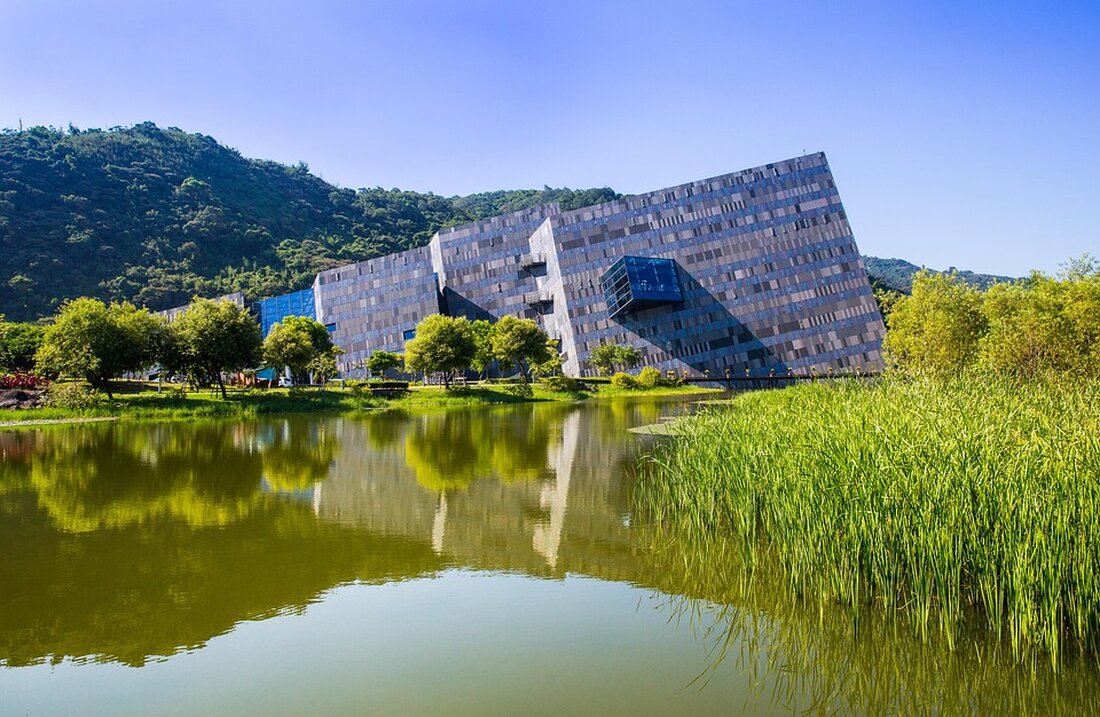Taiwan: Liberalism versus Abuse of Migrants in Fisheries
Taiwan, hailed as a champion of liberal values, is facing growing allegations of abuse and exploitation of migrant workers in the fishing industry. An article about the dark side of this industry.

Taiwan: Liberalism versus Abuse of Migrants in Fisheries
Silwanus Tangkotta was working on a Taiwanese fishing boat in the remote Pacific last year when a heavy wave slammed a rolling metal door onto his hand, shattering his middle and ring fingers.
Seeking medical help
The Indonesian migrant fisherman needed urgent medical attention, but the captain refused to return to port because they had not caught enough fish to justify the trip. For more than a month, Tangkotta suffered searing pain as he bandaged the wound with tape and picked at exposed bone with a toothpick to prevent infection.
"I did everything I could... I used nail cutters and toothpicks to remove the protruding bones," he told CNN. "I thought if I don't pull the bone out, the infection will continue and my fingers will rub."
Although Tangkotta's story of suffering is harrowing, it is by no means an isolated case.
The fishing industry in Taiwan
Taiwan operates the world's second-largest deep-sea fishing fleet, supplying tuna, squid and other seafood to supermarkets around the world, including the United States and Europe.
The self-governing island is widely promoted as a beacon of liberality and human rights in Asia and is considered a vibrant democracy with a relatively strong commitment to equality - for example, Taiwan is one of only three Asian countries where same-sex marriage is legal.
But the treatment of migrant workers has come under increasing international scrutiny, raising questions about Taiwan's commitment to these values. Since 2020, the U.S. Department of Labor has listed Taiwan's deep-sea fishing industry as a site of forced labor, highlighting issues such as fraudulent recruitment, withheld wages, physical violence and extreme work hours.
Reactions from the Taiwanese authorities
In a statement to CNN, Taiwan's Fisheries Administration said the U.S. Department of Labor's reports were based on "unverified" information from NGOs and described migrant fishers as "important partners" in Taiwan's fishing industry.
The agency said Taiwan was "one of the few" jurisdictions that had implemented "a concrete action plan on fisheries and human rights." Taiwan's Ministry of Labor said it is working with the Fisheries Administration to "pragmatically protect the rights of migrant fishermen in deep-sea fishing and improve relevant protection measures."
Yet migrant workers like Tangkotta continue to face severe abuse, often without significant public attention, in part because they remain politically and socially marginalized.
Stuck at sea
Originally from the Indonesian capital Jakarta, Tangkotta began working on Taiwanese ships in 2019, lured by promises of better pay to support his family. In Indonesia, fishermen often earn less than $100 a month, which is low compared to Taiwan's minimum wage of $550.
However, the reality was harsher than expected. On a medium-sized fishing vessel, Tangkotta worked in the unforgiving Pacific for up to four months at a time, working 18-hour shifts with only short breaks in between. Although the boat was designed for 23 crew members, only 16 were on board. The food was inadequate and often ran out quickly, he said.
But a bigger problem was the extreme isolation. The boat had no internet, cutting off the crew from their families and preventing them from seeking help. This isolation became critical when Tangkotta was seriously injured. The ship was near the Solomon Islands, about 5,000 kilometers from Taiwan, when the door crushed his fingers. With no way to call for help, he had no choice but to remain on board while the captain prioritized profits. When he was finally transferred to another ship weeks later, it was also about fishing instead of going straight back to port.
A long road to healing
“I felt helpless and the pain made it difficult to sleep,” he said. “I was disappointed because the only thing that was going through my mind was that I had to get ashore as quickly as possible.”
A month later, he was hospitalized in Taiwan with the loss of two fingers, but was immediately terminated - not because of the injury, the company said, but because his position was ending. As a result, he was denied compensation.
The Fisheries Department said it received a report on Tangkotta's case from the fishing vessel and that he received treatment from the captain throughout the voyage. "The case was reported to a doctor on shore who verified that there was no immediate danger. The captain continued to care for Mr Tangkotta based on the doctor's advice."
Patterns of abuse
Taiwan's deep-sea fishing industry relies on more than 20,000 Indonesian and Filipino workers, but the political will to protect their rights is lacking, said Allison Lee, co-founder of the Yilan Migrant Fishermen Union, based in a fishing port in northeastern Taiwan.
"Although the US has flagged Taiwan's fishing industry since 2020, the government responded with rhetoric, but very little changed," she said. Many workers were recruited with decent salaries but faced overwork and late wages.
Unlike most migrant workers in Taiwan, deep-sea fishermen operate under a different set of rules and are excluded from Taiwan's labor standards law, meaning they are deprived of the overtime pay and health insurance protections that others receive.
“There is a very serious problem with overwork,” Lee added. “Some migrant workers were told there would be 10 crew members on board, but there were only four on board and they had to work very long hours.”
Even basic safety measures were ignored, she said, and some were told not to wear life jackets because they "get in the way while working."
In 2023, 10 Indonesian crew members aboard the ship You Fu owed 15 months of wages while at sea with no way to contact families or verify payments, according to Taiwan's official Central News Agency. The fishermen were forced to eat instant noodle bait due to lack of food and routinely suffered verbal abuse, the report said. The salaries were eventually settled after the owner came under pressure from media coverage.
Wage theft is one of the most widespread problems facing migrant fishermen, said Achmad Mudzakir, a fisherman who serves as a leader of FOSPI, a Taiwan-based NGO, and helps other crew members. His organization regularly receives complaints about unpaid wages - with devastating consequences for families. "It is painful because we face high risks and put our lives at risk when we work hard at sea. The late payments affect our families back home," he said.
Necessary solutions for migrant fishermen
One of Mudzakir's proposed solutions is to provide Wi-Fi access to all migrant fishermen, as this would allow them to check their payments and seek help from NGOs, even in the middle of the ocean. Rules that bar migrant workers from changing jobs without returning to their home country or without paying new agency fees should be scrapped, he added, as they discourage workers from reporting abuse for fear of being fired and in debt.
In response to the addition to the US forced labor list, Taiwan's fisheries agency said it has implemented reforms since 2022 - including increasing the minimum wage, installing surveillance cameras on boats and hiring new inspectors to improve working conditions. But activists like Lee criticize the measures as cosmetic and say they are aimed at improving Taiwan's image rather than addressing the causes of forced labor.
A lost life
Adrian Dogdodo Basar, a former Indonesian migrant fisherman, raised calls for reform following the death of one of his closest friends on board a Taiwanese fishing vessel in 2023. While working in the Pacific Ocean, his friend became seriously ill with swollen legs and stomach pains. Adrian said the captain refused requests to return to port due to cost and only offered expired medication. After several months, before the ship returned, his friend died.
Adrian reported being punished with deprivation of food and threats of deductions from his wages when he demanded that the body be returned home immediately. “We asked him to just go to the nearest port to bring the body home, but the captain told us not to,” he said. “When I started protesting, I stopped getting food.”
Like other migrant fishermen, Adrian had paid more than $2,000 in agency fees to secure the work - a debt that prevented his colleagues from speaking out for fear of losing their jobs.
The responsibility of consumers
Although these abuses may seem remote, Taiwan is the world's seventh-largest seafood exporter, with a catch that ends up on dinner tables around the globe - meaning the seafood on supermarket shelves may have been caught by exploited workers. “American consumers continue to face significant risks of consuming seafood tainted by modern slavery,” said Sari Heidenreich, senior human rights advisor at Greenpeace USA. “It is critical for companies importing seafood from Taiwan to review their supply chains much more rigorously.”
Earlier this year, four Indonesian fishermen filed a landmark lawsuit against U.S. canning giant Bumble Bee Foods, owned by Taiwanese fishing company FCF Co, alleging the tuna giant "knowingly profited from forced labor, bonded labor and other abuses in its supply chain." It is the first known case of slavery on fishing boats targeting a US fishing company, Agnieszka Fryszman, one of the lawyers for the plaintiffs, told CNN.
As for Silwanus, who now has to rely on friends and relatives, he hopes no one else has to go through what he went through. "I hope that all my friends - all my brothers - who work on Taiwanese ships will be treated appropriately in the event of an injury at sea," he said. “I hope this stays with me and doesn’t happen again to other fishermen.”

 Suche
Suche
 Mein Konto
Mein Konto
